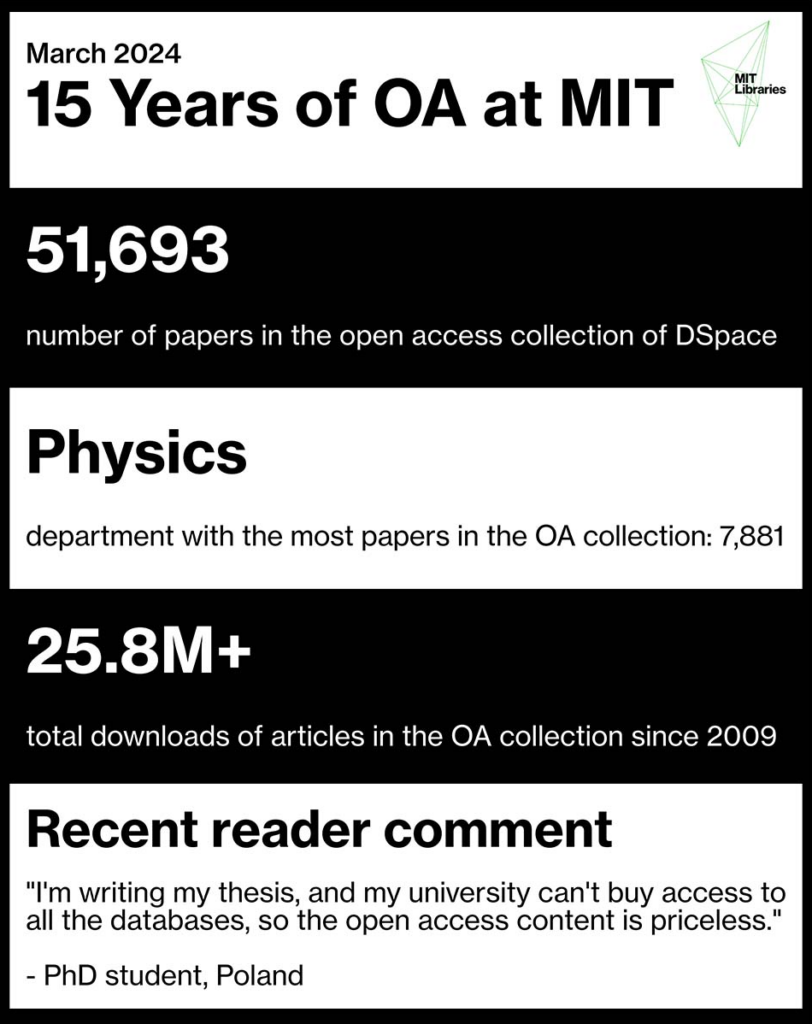 On March 18, 2009, MIT faculty unanimously approved an open access policy, the first institute-wide one of its kind in the country. The OA policy allows faculty to hold onto rights to openly share and reuse their scholarly papers, and to let others freely build on that work. (An opt-in version of the faculty policy launched in 2017, giving students, postdocs, researchers, and staff the same means to retain rights in their publications.)
On March 18, 2009, MIT faculty unanimously approved an open access policy, the first institute-wide one of its kind in the country. The OA policy allows faculty to hold onto rights to openly share and reuse their scholarly papers, and to let others freely build on that work. (An opt-in version of the faculty policy launched in 2017, giving students, postdocs, researchers, and staff the same means to retain rights in their publications.)
Fifteen years on, the open access landscape includes much more than university OA policies, and the MIT Libraries continues to be a leader. In 2019, the Libraries developed a principle-based framework to guide negotiations with scholarly publishers. Goals include protecting researchers’ rights to their scholarship and working with publishers to find equitable and sustainable publishing models. We’ve now signed large-scale agreements with seven publishers. The Libraries also funds individual articles and monographs, and we’ve joined others in collectively funding open access journals that charge neither subscription nor publishing fees.
The goal of the 2009 MIT OA policy was access to scholarship. And though the open movement now addresses broader issues around equity, quality, sustainability of research, and the skewed incentive structures that underlie academic advancement, access is still an important part of open science and scholarship.
So happy 15th anniversary, MIT faculty open access policy! And thank you for helping MIT authors share their articles with the world.
15 Years of OA at MIT
March 2024
- 51,693: Number of papers in the open access collection of DSpace
- Physics: Department with the most papers in the OA collection (7,881)
- 25.8 million: Total downloads of articles in the OA collection since 2009
- Recent reader comment: “I’m writing my thesis, and my university can’t buy access to all the databases, so the open access content is priceless.” – PhD student, Poland


